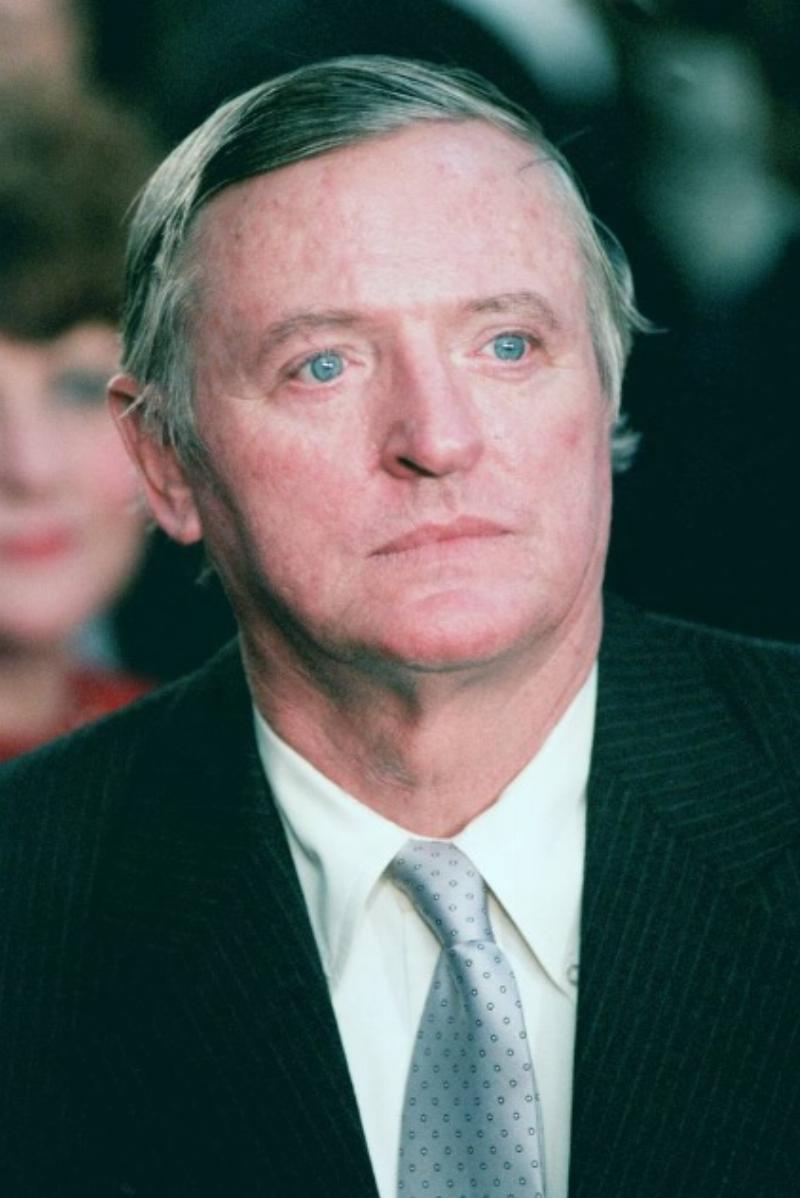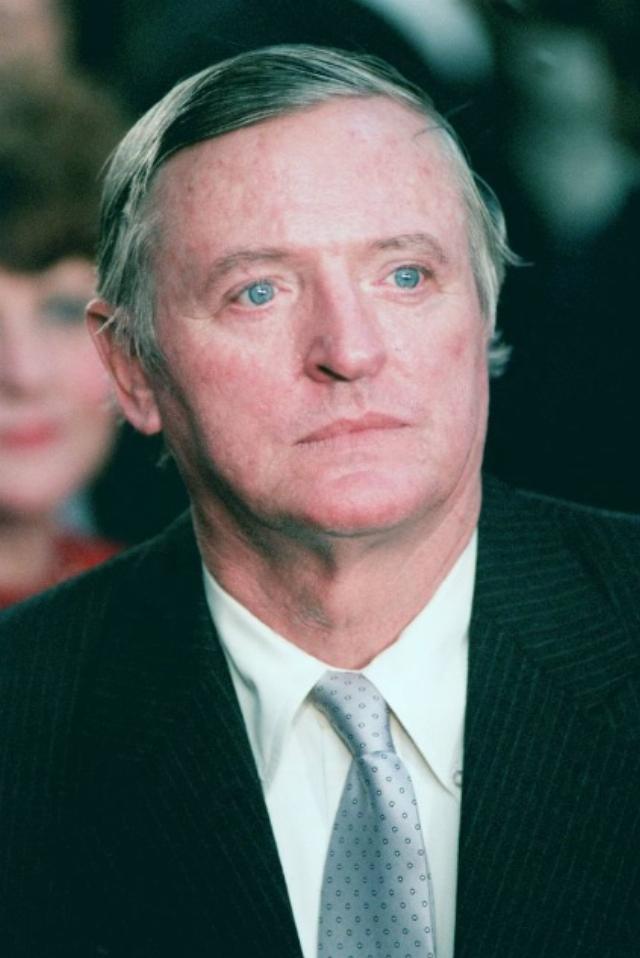


William F. Buckley Jr.’s authorized biography recently appeared, a disappointment from an adversarial biographer. Buckley selected the wrong biographer. Barton Swain, writing in the Wall Street Journal, described biographer Sam Tanenhaus’s effort as “the book conservatives feared it would be.” Previous biographies are laudatory.
Wall Street Journal film critic Kyle Smith’s review provides an antidote, describing Tanenhaus as a “New York Times liberal.” Charlie Rose and The Atlantic couldn’t wait to interview this Obama fanboy after his Buckley biography appeared. In 2009, after Obama’s election, Tanenhaus excitedly published The Death of Conservatism. He wished. Less than a month after Obama’s inauguration, the Tea Party movement began, eventually absorbed into MAGA. Conservatism’s reinvigoration was only beginning.
Smith managed to distill Buckley’s essence and appeal to the Common Man in his brief review. Tanenhaus required 27 years to produce 1,040 pages, about three a month. Tanenhaus absurdly described Buckley as “a conversationalist, not a thinker and still less a theorist.” National Review editor Rich Lowry praised the book’s detail but said it “feels like a rush job.”
Buckley’s political footprint remains massive. How many other public intellectuals are recognized by a three-letter acronym, WFB? What other intellectuals spawned enduring political movements, including Nixon’s Silent Majority, Reaganism, and Trumpism? For 33 years, until 1999, a third of a century, he hosted PBS’s “Firing Line,” debating ideas and individuals. It was television’s longest-running public affairs program hosted by a single individual. Buckley pioneered televised political debate.
Buckley’s political epitaph reads: Make Conservatism Fun Again. Reagan and Trump got it. Nixon didn’t, but that didn’t stop him and Reagan from being reelected in 49-state landslides. Buckley began as a scion of Texas oil wealth, determined to have fun. Optimism and fun go hand-in-hand. So does the incessant pessimism and gloom the Left emits. The Left appeals to malcontents. They incessantly foster chaos to feed this pathology.
The remarkable thing about Buckley was his appeal to the Common Man, something manifested during his 1965 NYC mayoral campaign, running as the Conservative Party candidate. In liberalism’s temple, he polled as high as 33% at one point. His platform emphasized law-and-order and opposed liberal policies such as welfare spending. When asked what his first act would be if he won, Buckley replied, “Demand a recount!” His Republican and Democrat opponents were described as a tall liberal and a short liberal, respectively.
 Among Buckley’s favorite TV shows was “All in the Family.” Carroll O’Connor played Archie Bunker, a conservative everyman resisting 1970s liberalism. Buckley was peeved one Saturday evening when he missed the show to attend a dinner at Nelson Rockefeller’s. To his delight, he wound up seated next to O’Connor.
Among Buckley’s favorite TV shows was “All in the Family.” Carroll O’Connor played Archie Bunker, a conservative everyman resisting 1970s liberalism. Buckley was peeved one Saturday evening when he missed the show to attend a dinner at Nelson Rockefeller’s. To his delight, he wound up seated next to O’Connor.
George Will, a protégé of Buckley, observed, "Without Bill Buckley, no National Review. Without National Review, no Goldwater nomination. Without the Goldwater nomination, no conservative takeover of the Republican Party. Without that, no Reagan. Without Reagan, no victory in the Cold War. Therefore, Bill Buckley won the Cold War." Without Buckley, no Golden Dome, implementing Reagan’s SDI.
Buckley, who died in 2008, was no Trump fan. He dismissed Trump as a narcissist, declaring, “When he looks at a glass, he is mesmerized by its reflection. If Donald Trump were shaped a little differently, he would compete for Miss America.” Many of us felt similarly before Trump descended the escalator, failing to grasp his marketing genius: I’m rich, and I intend to make America rich. And keep America safe. What did Hillary Clinton offer in 2016? Who knows? Trump promised prosperity and safety.
If Buckley were alive, he would support MAGAism. The pre-political Trump cultivated branding and publicity. Unlike Buckley, he concealed a deeply intellectual core, evidenced in videos recorded in 1980, 1988, and 1991. “The Apprentice,” pro wrestling, beauty pageants, and casinos represented populist marketing. Prior to the branding makeover, Nixon recognized Trump's potential, writing him in 1987, “I did not see the [TV] program, but Mrs. Nixon told me that you were great. As you can imagine, she is an expert on politics and she predicts whenever you decide to run for office you will be a winner.” According to Trump, Nixon urged him to enter politics. Trump wrote him in 1982, “One of my great ambitions is to have the Nixons as residents in Trump Tower.” This was when Nixon was persona non grata in New York society and failed to gain co-op board approval to purchase an exclusive Madison Avenue apartment. Trump recognized Nixon enjoyed broad populist appeal and could enhance his building.
Buckley’s and Trump’s philosophies overlap. They valiantly resisted communist infiltration. Trump succeeded by packaging conservatism (actually centrism) in a populist vessel. Both opposed the neocon war lobby, especially regarding the Iraq war. Nixon shared a similar approach. He extracted us from the Democrats’ Vietnam, favoring detente with Russia and China, a realpolitik philosophy, rather than fruitlessly battling what only time could change. The Deep State engineered Nixon’s removal for such heresies. Trump was punished for the same sin.
Although benefiting from PBS’s public funding, Buckley opposed its government subsidy. He would applaud Trump defunding another liberal NGO. Trump’s contrived, coarse language conveys core American principles. Buckley wielded a rhetorical scalpel, while Trump swings a sledgehammer, conveying similar principles. Both battled leftism. Seven decades after Buckley founded National Review, Trump reverses leftism’s tide. Buckley herded conservatives during leftism’s ascendancy; Trump oversees liberalism’s downslope. Political gravity is taking over. Leftism required a century to accumulate political mass. Its descent is spectacularly rapid.
The country was always majority conservative. The Left, backed by foreign funding, captured cultural institutions and undermined core conservatism, convincing ordinary Americans to accept a false reality. Previous Republicans (except Reagan) never effectively marketed principles. If leftists have lost Snoop Dog, uncomfortable taking his grandsons to Disney movies, they’ve lost the center.
Buckley remade the GOP from a pro-business lobby to a libertarian/freedom-focused coalition. Trump does something similar, but broader. Buckley appealed from the cerebral stratosphere. Trump ascends from the political gutter, targeting the disaffected impoverished by Washington’s bipartisan, endemic corruption. Trump is an equal-opportunity political party destroyer, assembling a de facto third, majority party. Congressional Republicans now constitute window dressing, carefully avoiding Trump’s wrath.
Buckley was the right man for his times, declaring in 1955, “A conservative is someone who stands athwart history, yelling Stop, at a time when no one is inclined to do so.” Trump is the right man for our times, dismantling leftist insanities. While enjoying way too much fun: “Thank you for your attention to this matter.” The two bookended leftism’s ascent and descent.
Buckley gets the last laugh on September 9. A commemorative stamp will be issued, honoring his centennial. A perfect stamp for sending greetings to lefties. Buckley made conservatism fun and great again. Widely imitated, he was an American original.
Douglas Schwartz blogs at The Great Class War, applying pattern recognition of historical cycles to place current events into context.
Image: National Archives
